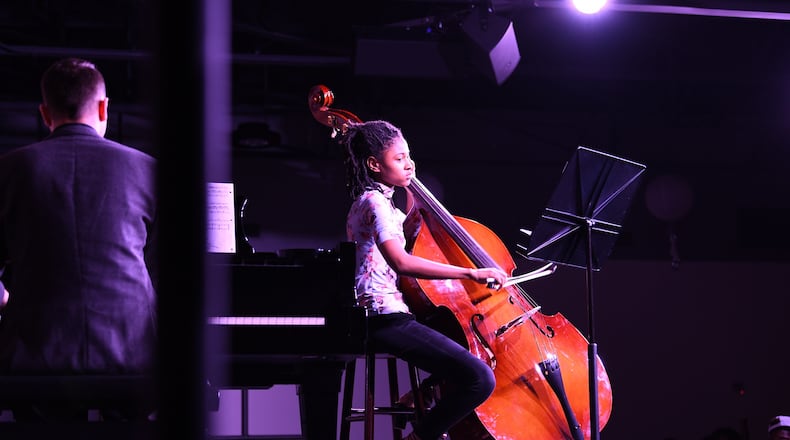The Atlanta Music Project, which offers free after-school music instruction to 350 students each year, is among the finalists for a $500,000 grant called the Lewis Prize.
The prize is a new program funded by Progressive Insurance heir Daniel R. Lewis, intended to encourage innovative music education.
The Atlanta Music Project (AMP) is one of eight organizations in line for one of three $500,000 prizes. The other groups are based in Detroit, St Louis, Boston, San Francisco and Philadelphia.
“We are honored to be recognized as a finalist for the Lewis Prize for Music, alongside seven formidable organizations,” said AMP co-founder and CEO Dantes Rameau. “I am grateful to the entire Atlanta Music Project organization for their hard work and commitment, as our team continues to persevere through these challenging times to support our community.”
Winners of the “Accelerator Award” grants will be announced Jan. 12, 2021.
“The eight 2021 Accelerator Award Finalists show us all that giving youth opportunities to express themselves through music improves their own cognitive and emotional development and their community’s well-being,” said founder Lewis, in a statement.
Lewis, of Miami, is a son of Progressive Insurance co-founder Joseph M. Lewis and brother of the company’s former chairman and CEO, the late Peter B. Lewis.
Credit: The Atlanta Music Project
Credit: The Atlanta Music Project
This is the first year of the Lewis Prize, which is awarded in three categories: the Accelerator Award, which provides $500,000 over several years, the Infusion Award, which offers $50,000 in a single year, and the Finalist Award, which gives $25,000 in a single year.
Rameau said the prize helps support “organizations that are working on youth development but using music as the vehicle.”
This is an apt description of AMP, which was founded in 2010. According to the AMP website, it offers “more than 5,000 hours annually, of intensive, tuition-free music education for underserved youth right in their neighborhood.”
The non-profit organization provides instruments for its students, gives them teachers and performance opportunities in the band, orchestra and choir. AMP students perform 40 concerts a year and have appeared on NPR’s Tiny Desk Concert with hip-hop artist T.I.
In May 2019, the students and faculty of AMP performed with Christian hip-hop artist Lecrae to christen their new facility, a 7,500-square-foot former grocery store in the Capitol Heights neighborhood, transformed with a $900,000 renovation into a performance space, with rehearsal rooms and administrative offices.
During the pandemic, the facility has been empty, and AMP teachers have been conducting classes online, and streaming performances.
The interviewers from the Lewis Prize spent hours interviewing AMP students, faculty and board members online, said Rameau, who said they asked the fundamental question, “What is your concept of creating a systematic change in music education?”
Rameau said his answer was: “Instead of basing music education on the Euro-centric tradition, what if we re-centered music education based on the culture of the kids we’re serving?” He added that 95% of those students are African American, and their interests include musical theater, hip-hop, jazz and video production.
While the classical canon is important, he said, “Our kids are hip-hop; our community is hip-hop. You can’t stick your head in the sand.”
The board of the Lewis Prize made it clear that they’re “not looking for the typical music education class,” he added.
Credit: The Atlanta Music Project
Credit: The Atlanta Music Project
Rameau said he told the prize committee that the AMP planned to create a new brand of student-led programming, featuring elements that the students have requested, including Broadway-style musical theater, with pit orchestras, choirs on stage and performers singing and dancing. Students have also sought training in music and video production, including “everything not just in front of the camera but behind the camera.”
Since the Accelerator Prize will be awarded to three of the eight finalists, Rameau said his hopes are high.
“Fingers crossed,” he said.





